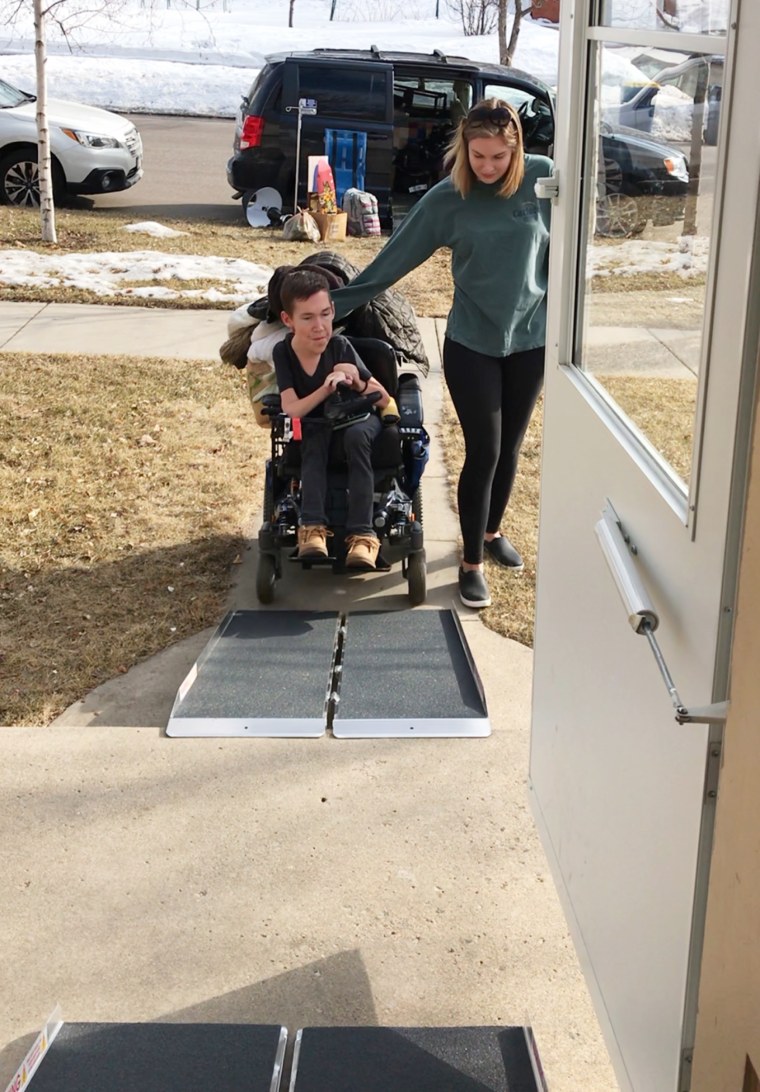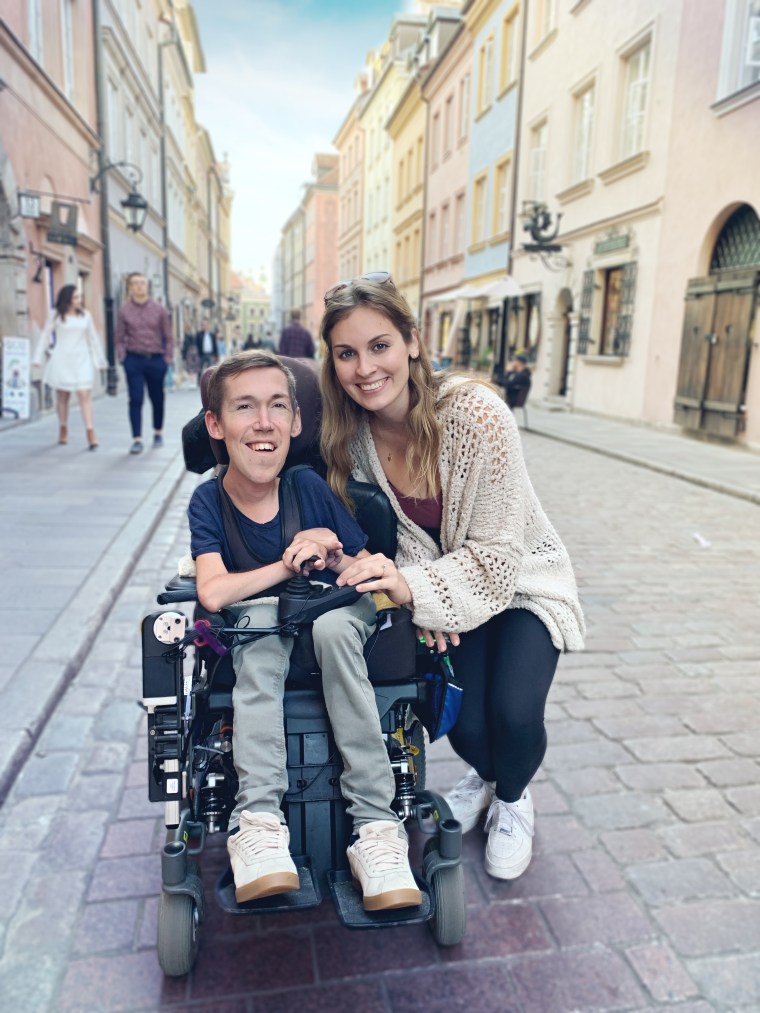My fiancée, Hannah, and I are strolling through a quaint downtown shopping area in Florida. We're on vacation and tonight’s mission is to hunt for souvenirs. At last we find a gift shop, but to our dismay, we notice the front entrance includes three steps to the front door, making it impossible for me to get inside in my wheelchair. Hannah goes in to ask if the owner might have a ramp or another entrance. She returns and shakes her head “no” with frustration. In the shop’s front window, a large, bright sign cheerily proclaims, “All Are Welcome Here!”
All ... Except the almost three million of us who use a wheelchair in the United States. We are decidedly not welcome here.
When we share this story with people, their reaction is typically something like: “But what about the Americans with Disabilities Act (ADA)? I thought everything had to be wheelchair accessible?”
This reaction, and the assumptions behind it, signal a massive misunderstanding of the current state of accessibility and disability discrimination in the United States.
To be clear: The passing of the ADA was a monumentally important moment in disabled people’s fight for civil rights. Being born after its passage in 1990, I’ve only ever lived in a world that affords me its benefits, and I’m eternally grateful for the activists and trailblazers who fought tirelessly (for decades) to win us the protections that I get to take for granted.
My intention today, during Disability Pride Month, is not to disparage the ADA or the hard work that went into creating it, but rather to highlight the ways in which our society and our systems must further improve in order to truly protect the rights of disabled people under the law.
To supplement my perspective, I spoke to many people with a wide range of disabilities. What follows is a summary of the most crucial improvements to the ADA that the disability community hopes to see in the next 30 years of its existence.
1. Improve enforcement of the law.
Let’s go back to the gift shop as an example of the aggravating lack of ADA enforcement procedures. Thanks to the ADA Education and Reform Act of 2017, if I feel discriminated against by a commercial business, I need to endure the following before I’m even eligible to make an official complaint with the Department of Justice:
As the “aggrieved person” it is my responsibility to submit a written letter to the shop owner. OK, so in this situation, we head home and type up a letter that night, mailing it the next day.

The owner now has 60 days (two months!) to send me a letter explaining what changes they will make to remedy the situation. I hope our loved ones don’t mind waiting a bit for those souvenirs!
Once I receive their response, the owner has 60 additional days to “make substantial progress” on carrying out their remedy. Another line gives the owner unlimited extra time for “circumstances beyond the control of the owner.”
It’s now been over four months and I’ve missed my flight home, so I decide that a $12 Florida shot glass is just not worth the time and energy. I give up. Even though this example doesn’t carry very high stakes, it shows the incredibly unfair burden that now falls on disabled people to initiate an ADA complaint. The ADA needs its own specialized department, staffed by experts, whose sole purpose is to quickly and effectively prosecute violations of the ADA.
Beyond better enforcement of the existing laws, I repeatedly heard several other hot ticket items of injustice from those who shared their thoughts with me.
2. Marriage equality for disabled people.
Obviously, there’s no law explicitly stating that a disabled individual may not get married. However, there are many policies that make it virtually impossible.
Many disabled individuals rely on government-funded programs to survive, things like social security payments, caregiving waivers (a government program to assist adults who need in-home care) and health care plans. To qualify for these essential programs, an individual cannot exceed a certain income threshold. If a disabled person marries, their spouse’s income and assets are immediately added into the qualifying equation, making marriage an unrealistic dream for millions who need disability programs of any type. Hannah and I have openly discussed not getting married just in case I ever need a caregiving waiver. Those are not fun, or fair, conversations to have.

3. ADA needs to broaden its oversight.
Accessible housing is severely lacking. Airplanes are not wheelchair-accessible and exist outside the control of the ADA. Public transportation like subways and buses have avoided requirements to become accessible in hundreds of cities across the U.S.
Individuals with chronic illnesses and other invisible disabilities are often denied equal protections. Many people who are blind shared that finding a Braille menu at a restaurant is like discovering a four-leaf clover: rare. Closed captions and interpreting services for deaf people do not exist in many essential institutions. The list goes on and on. I’m only stopping here because my fingers are getting weak from typing all of these injustices.
The ADA has been around for 30 years as of July 26. Without question, its policies have drastically improved our systems surrounding disability, but there’s so much more work to be done. Within the next 30 years, I hope to see all of the items above improved or changed, but above all else, I hope the stupid gift shop finally adds a ramp.
Shane Burcaw has spinal muscular atrophy and a wicked sense of humor. He runs a blog about his experiences and is the founder of a nonprofit organization dedicated to providing adaptive technology to people living with muscular dystrophy. He is the author of "Strangers Assume My Girlfriend Is My Nurse" and "Laughing at My Nightmare" and the award-winning picture book "Not So Different."
